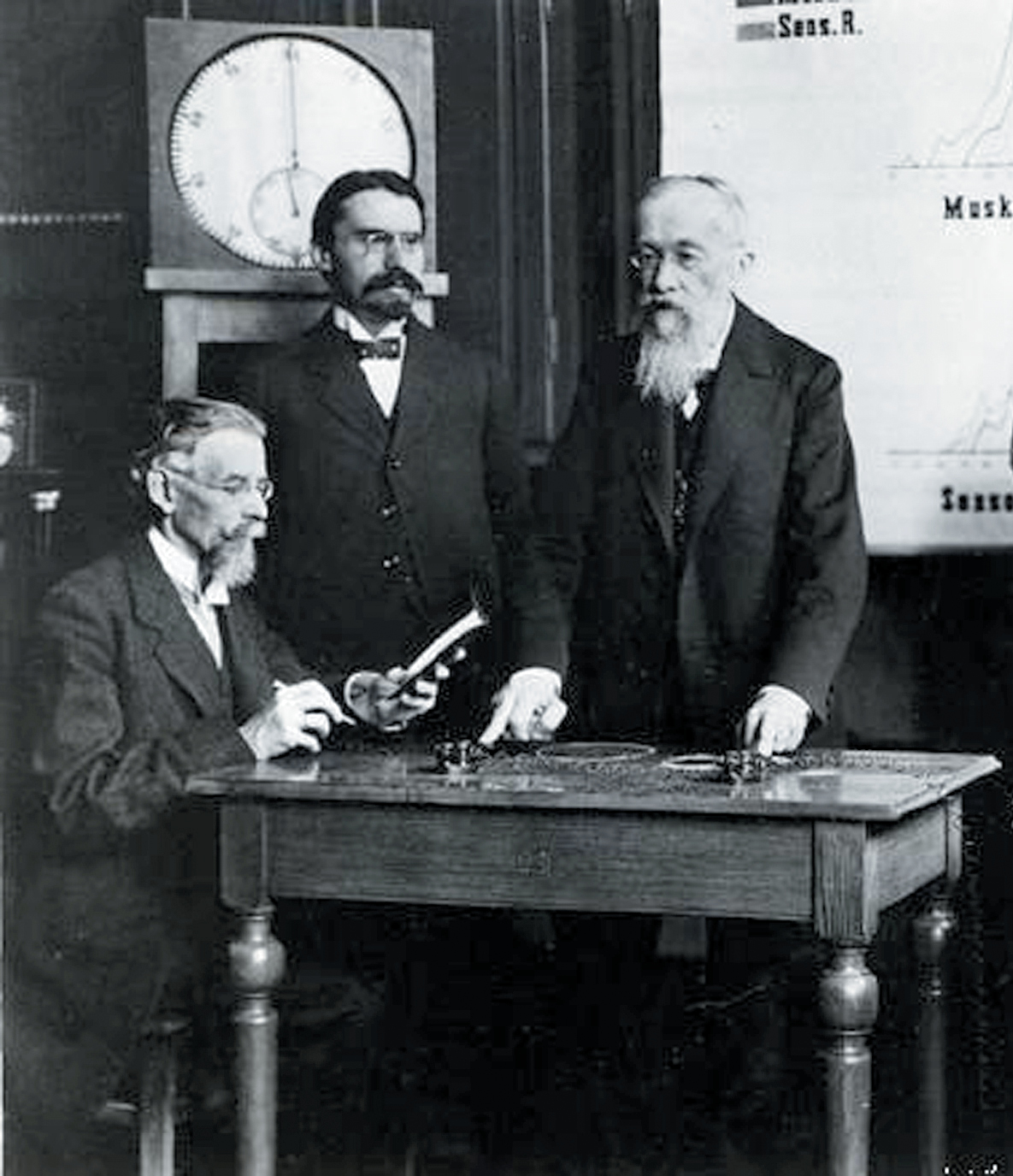![]() Reaction Time Demonstration
Reaction Time Demonstration
What Key Principles Guide Psychology Today?

FIGURE 1.7 The Field of Psychology Began in 1879
Most people recognize 1879 as the year that experimental psychology began. In that year, Wilhelm Wundt (on the right) established the first psychology laboratory.
The field of psychology may seem new, but humans have been trying to understand mental activity and behavior for thousands of years. In fact, the early Greek philosophers, including Aristotle and Plato, debated psychological questions, such as “What part of the body controls our mental processes?” and “Are we born with knowledge or do we gain it over time?” Yet psychology was not recognized as a scientific field of study until 1879, when Wilhelm Wundt established the first experimental psychology laboratory in Germany to measure how long it took participants to complete certain mental tasks (Figure 1.7).
In the nearly 150 years since that time, the field has grown considerably. Today, almost 750,000 people with advanced degrees in psychology are conducting research, providing mental health services, or working in fields related to psychology (American Psychological Association, 2018). These psychologists work in interconnected ways to understand psychological phenomena from multiple perspectives. They are diverse in their own identities and experiences and in terms of whom they ask to participate in psychological research. In addition, psychologists are more careful than ever to conduct their investigations safely and ethically. Let’s look at each of these key foundations of psychology today.